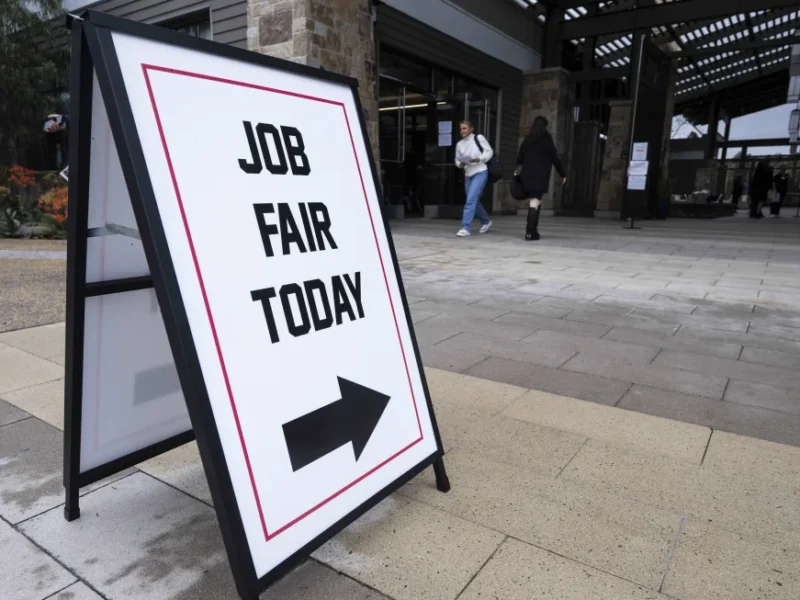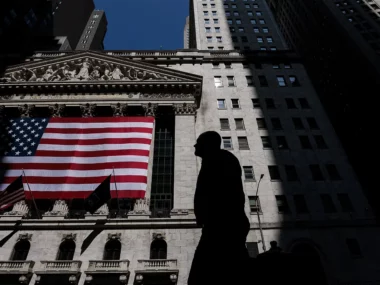The US economy is not completely out of the woods yet, but it’s performing better than anticipated by many economists just a few months ago, particularly according to forecasts by S&P Global Ratings. They now anticipate a growth of 2.4% in US real gross domestic product (GDP) for 2024, up from the 1.5% forecasted in November. Real GDP represents the total value of goods and services produced by a country, adjusted for inflation.
Before the Bell recently interviewed Satyam Panday, the chief economist at S&P Global Ratings, to discuss the current state of the economy and how GDP affects personal finances, including 401(k) investments. Panday noted that this revision in the growth forecast is significant, attributed largely to the stronger-than-expected performance in the job market over the past few months. However, he emphasized that while there’s optimism, the economy is still expected to slow down to below trend growth, although the timing has been pushed back due to the resilience of US households.
Regarding the possibility of a recession, Panday clarified that while a cyclical slowdown is anticipated, a recession isn’t in the baseline forecast. However, external factors such as prolonged high interest rates or unexpected shocks could alter this trajectory. He acknowledged that certain sectors, like manufacturing and housing, have experienced weaknesses but are showing signs of stabilization. Panday also highlighted the significant impact of fiscal policies on economic growth, such as recent legislative acts, which have contributed substantially to GDP growth.
While employment has remained strong, Panday pointed out emerging concerns such as rising delinquency rates in consumer credit and potential softening in overall income despite sustained wage growth. Red flags include reduced hiring plans by independent businesses and increased temporary hires, suggesting a potential softening in employment demand in the coming months.
Panday emphasized the significance of GDP growth to the labor market, explaining that a robust economy correlates with a healthy job market. This, in turn, affects personal finances, including retirement investments like 401(k)s, as strong economic growth typically translates to lower unemployment rates and higher wages, providing a positive outlook for job prospects in the foreseeable future.
Warren Buffett pays tribute to Charlie Munger as Berkshire Hathaway announces a record cash reserve.
Warren Buffett’s annual letter to Berkshire Hathaway shareholders published Saturday honored his longtime colleague and friend Charlie Munger, who passed away in November.
Investors have often sought insights from Buffett, known as the Oracle of Omaha, on various topics including markets, the economy, and life. However, Buffett began Berkshire’s 2023 annual report with a personal tribute to Munger, who passed away just before his 100th birthday.
Buffett emphasized Munger’s pivotal role as the “architect” of the conglomerate, likening him to the mastermind behind great buildings. He acknowledged Munger’s enduring contribution, stating that while Buffett had overseen the company’s operations, Munger deserved credit as the visionary behind its success.
In financial terms, Berkshire Hathaway reported a significant increase in fourth-quarter operating earnings, reaching $8.5 billion, a 28% rise from the previous year. Full-year operating earnings also saw growth, reaching $37.3 billion compared to the previous record of $30.8 billion in 2022.
Despite a substantial net loss in 2022, Berkshire Hathaway rebounded in 2023, ending the year with a net profit of $96.2 billion.
The conglomerate’s insurance underwriting business, a key component of its portfolio, experienced a notable improvement, generating $848 million in the fourth quarter compared to $160 million in the same period the year before. Overall, insurance underwriting contributed $5.4 billion in earnings for 2023, a significant increase from the $30 million loss in 2022.
Berkshire also engaged in stock buybacks, repurchasing $2.2 billion worth of stock in the last quarter, totaling approximately $9.2 billion for the year.
Buffett’s report highlighted Berkshire’s substantial cash reserves, which reached a record high of $167.6 billion in cash and equivalents, surpassing the previous quarter’s record of $157.2 billion.
The significant cash reserves have sparked speculation among investors about Buffett’s potential acquisition plans to further expand Berkshire’s portfolio.
The US Supreme Court is set to review significant cases related to social media.
The US Supreme Court is poised to render a critical verdict on the content regulation of social media platforms, with two cases under scrutiny this week. These cases, which my colleague Brian Fung reports on, have the potential to reshape the landscape of the internet.
Scheduled for Monday, the court will examine arguments regarding whether Texas and Florida should wield significantly greater authority over social media platforms and their content. This underscores the profound influence these services have on contemporary American society.
At the heart of the issue lies the question: Should these platforms have autonomy in determining the content displayed on their platforms, including what is permitted or removed?
The states advocate for restrictions on platforms like Facebook, TikTok, and YouTube, aiming to prevent the removal of user-generated content, even if it involves hate speech, promotion of eating disorders, or misinformation regarding elections. However, such efforts clash with the protections afforded by the First Amendment.
A favorable ruling for the states could potentially alter the dissemination of information about the upcoming 2024 elections across various social media platforms, from Instagram to other platforms.











